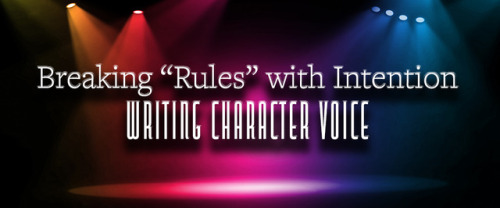Howl, Throwing His Head On Sophie's Lap And Looks Up At Her Innocently: Sophie, Tell Me I'm Pretty.
Howl, throwing his head on Sophie's lap and looks up at her innocently: Sophie, tell me I'm pretty.
Sophie, resting her hand on Howl's cheek and smiles lovingly at him: You're pretty fucking annoying that's what you are.
More Posts from Souppooppie and Others








Dhampir hunter — your mother was human, but your father was a vampire, and you’re betraying his ancient blood. Your human self is your weaker self. Humans are nothing more than livestock.
VAMPIRE HUNTER D: BLOODLUST (2000) dir. Yoshiaki Kawajiri
Just saw a post that said, “young does not mean pain free. young does not mean abled.” Yes, absolutely. And equally: autistic does not mean a child. Learning disabilities do not mean a child. Developmental disabilities do not mean a child. Both in the sense that we do grow up, actually, and in the sense that, when we grow up, we are true adults. Needing help with certain things does not negate this.
Me, person with chronic pain : I am in pain. My body is heavy.
My mom : maybe you should try boxing?
LOOK- I CAN'T EVEN BE MAD AT THIS.
Books to help you deal with life when you have ADHD (totally not free 👀)
Delivered from distraction
The queen of distraction
The ADHD Advantage
Smart but stuck

Driven to distraction
Driven to distraction at work
Smart but scattered
Finish what you start

Mindset
The Mindfulness Prescription for Adult ADHD
Organizing Solutions for people with ADHD
Self-regulation & Mindfulness

ADHD: A guide to understanding
The disorganized mind
Overcoming distractions
Coaching college students with executive problems

Learning outside the Lines
Faster than normal
ADHD 2.0: New Science
Thriving with Adult ADHD

WHAT THE FUCCAA
things i didnt realize were signs of being neurodivergent when i was younger
not being able to stand certain textures of clothes and complaining when i was forced to wear them
being a “picky eater” (and then getting punished for it)
struggling to understand gender norms (like being told long hair is for girls, short hair is for boys, certain colors decide your genitals apparently, etc)
reading the same short story books over and over again
getting sensory overload constantly and thinking that im just too sensitive and it must be a character flaw i have to fix
bringing certain objects or belongings with me everywhere for comfort
spending way too long making up my own fantasy worlds or stories
fellow ND people please feel free to add on (neurotypicals welcome to reblog but dont clown)
what exactly am I suppose to do when I feel under stimulated but can't do anything about it cause executive dysfunction and old fixation doesn't give me the good juices anymorrr


If you try and figure out the rules about creative writing, you’re going to find that established authors and editors often disagree about nuances of the craft. There are, of course, some hard-and-fast rules about punctuation and grammar, but so many rules vary from genre to genre, generation to generation, audience to audience. Sometimes there are rules that boil down, simply, to consistency.
So you might even say that you have your own set of writing rules. Each and every author’s rules are slightly unique. That unique set of “rules” is part of what makes up your author’s voice.
So when are the appropriate times to break those rules, your own rules? They happen, don’t they? In my last post, I gave a list of filler words and overused words that you can consider cutting out of your writing to help sharpen it. But everything–even mediocre vocabulary, poor grammar, and repetitive structure–has a place in writing.
Breaking Your Mold to Write Character Voice
Jordan is an author (hypothetically). She has been writing for years, gotten an English degree, read a zillion books, and written several novel drafts of her own. Over her years of writing, she has finally come into her own voice. When she writes, she no longer feels derivative or inexperienced. It’s freeing and wonderful!
But there’s one thing that Jordan hasn’t figured out yet…and that’s character voice. Her authorial voice, while wonderful and unique, seeps into the voice of all of her characters. The result is that all of her characters, whether speaking or narrating, sound exactly the same: they sound like her.
Part of what makes a multi-POV novel come to life is variation in character voice. Part of what makes an author’s portfolio stand out is the vast scope of voices their characters use across their works. Part of what sets apart side characters as characters instead of tools for the protagonist or plot devices for the narrative is a unique and compelling voice.
So how does one accomplish such a thing?
Well, there are many ways. But today I’m focusing on language and syntax, particularly in the rule-breaking department.
The first exercise you can do is take a piece of dialogue, preferably just a back and forth between two characters, and write it one way, then switch roles. Have the characters say basically the same thing, but in their own voices.
Author Voice Conversation
R: Oh. You’re worried about me E: I am no such thing. Worrying about you sneaking into enemy territory is like…worrying about a fish drowning in the ocean. R: You sure seem dead set on stopping me from going. E: We need to come up with a plan. It would be foolish to just waltz into their territory with no idea what we’re doing. R: You’re really quite cute when you’re worried. E: You’d like me to be worried, wouldn’t you? Just go. I don’t know what I’m freaking out about, anyway. R: Me either. Bye. E: Bye, idiot. Don’t get caught. R: *sigh* Is that really what you expect of me?
There’s nothing wrong with this conversation at all. But I’m just writing as if I, personally, was speaking. I know what the personality of these characters are, but that isn’t necessarily enough. I’m going to inject a little bit of their own tics, their own backgrounds, into their speech.
Character Voice Conversations
R: Oh. You’re worried about me, aren’t you? E: Really? Please. I don’t worry about anyone. R: But you don’t want me to go. E: I just…think that we need to come up with a plan first. R: You’re really kinda cute when you’re worried. E: I’m NOT—Grah! Fine! Go, then. I don’t know why I’m trying to help you, anyway. R: Neither do I. I sure as hell didn’t ask for it. E: See ya, then. Try not to get blood on my shirt. R: Go drown in the tears of your unborn children, Tiger.
And now, roles switched:
E: Heh. You’re…worried. R: Fuck off. I don’t have energy to waste worrying about you. E: You want me to stay. Safe. R: I mean…having a plan would be a good idea, but what in hell do I know? The fuck are you doing? E: You’ve got some worry on your face. R: Don’t touch me. Don’t even talk to me. I’m sorry I mentioned anything about a plan. E: So am I. I’ll bring you skin of an atosh as a trophy. R: Bye, Tiger. If you’re not back in one day, I’ll assume you died. E: Don’t wait that long. I’d love to come back and find peace and quiet waiting for me instead of you.
What sort of things influence the diction of your characters? In example 1, R says, “You’re really quite cute when you’re worried,” whereas in example 2, she says “kinda,” instead. In both of the latter examples, R is more prone to using “fuck” and “hell.”
In one of my novels, I have two narrators: K and B. K is well-read, well-spoken and a little snobbish. B isn’t an idiot, but he dropped out of school in (what amounts to) the fifth grade. He’s spent a large portion of his life outside of society and largely lived his life how he wanted. So when they say basically the same thing, K might say,
“I’ve got this covered. Thank you, but, honestly, it isn’t anything to worry about.”
Where B would say,
“I’ve got this. For real. Thanks.”
In general, as I write their dialogue, B uses more contractions, shorter sentences, and doesn’t use many words beyond the 1000 most commonly used. He makes grammatical mistakes (Saying “me” when he should say “I”) He has more verbal tics, “Um…” “Er–” “Well, it’s just that…” etc. K speaks with much more flowery language and tends to elaborate beyond what is necessary. This means unneeded adverbs, “moment,” “rather/quite/somewhat,” superfluous reflexive pronouns, etc. I have one character who tends to speak in run-on sentences whenever she uses the word “because.” I have one character who compulsively addresses the people he’s speaking to, so much so that other characters make fun of him for it.
These are all things that, in general, I avoid doing. But using them purposefully helps to set character voices apart.
Narrator Voice
To some extent, narrator voice can use these same tactics. If you’re using multi-pov, especially, these kinds of nuances will help your reader really feel like they’re reading the words of multiple characters, rather than just being told they are. If you’re writing an intimate third-person or first person, these same principles can help bring your narrative voice to life, just like the words written in quotes.
Think about these two opening lines and how the voice of the narrator gives you two very different impressions about the same event:
The sun was rising. Though the scent of the overnight dew hung heavy over our tent, the sleeping bag hugged us close together. She smelled warm, and even the scent of our intermingled sweat was pleasant in the early morning. I wondered briefly if the residual alcohol was softening reality, but ultimately it didn’t matter. I was in love.
The sun was coming up. The air was heavy, humid in the muggy morning. Our sleeping bag was wrapped tight around us, the moisture from our breaths clinging around our heads. Sticky and warm, she still smelled like sex. It was probably an objectively terrible smell, but the memories made it nice. I blinked, wondering if that last glass of wine was still hanging over me, but I don’t guess it mattered. I fucking loved this girl.
So think about it! There are tons of factors that could go into how your characters speaks…and thus, what “rules” you break in their dialogue.
How educated or well-read is your character?
What influence does their culture have on their diction?
How wordy do they tend to be?
If they use as few words as possible, maybe mostly grunts, what is the motivation behind that?
How much attention do they like to bring to themselves?
How self-conscious are they about their voice? Their speech patterns? The effect their words have on others?
How long does it take them to get to the meat of what they’re saying?
How much do they make others laugh?
How optimistic or pessimistic are they?
How much do they try to avoid talking about themselves or their emotions?
At what point do they end a conversation they don’t like?
How long does it take them to get angry in a disagreement?
How does anger alter their speech?
How does overwhelming sadness alter their speech?
How does immense joy alter their speech?
What words do they use with noticeable frequency?
Do they speak differently in intimate settings than in public?
Don’t be afraid to use any and every word to give your characters their own voices. As I always say, to anyone in basically any situation: I don’t mind if you break any rule at all…as long as you broke it with deliberated intent.
Happy revising!



Anime: Blade runner black out 2022 (2017)
Anime: Ergo proxy (2006)
Anime: Ghost in the shell (1995)
-
 sea-boi liked this · 1 month ago
sea-boi liked this · 1 month ago -
 nope-astrology-nope reblogged this · 1 month ago
nope-astrology-nope reblogged this · 1 month ago -
 procrastaenating liked this · 1 month ago
procrastaenating liked this · 1 month ago -
 counting-corpsess reblogged this · 1 month ago
counting-corpsess reblogged this · 1 month ago -
 notmysecret reblogged this · 1 month ago
notmysecret reblogged this · 1 month ago -
 safelyinsideabook liked this · 1 month ago
safelyinsideabook liked this · 1 month ago -
 prettykawa reblogged this · 4 months ago
prettykawa reblogged this · 4 months ago -
 luckyicekitsune liked this · 5 months ago
luckyicekitsune liked this · 5 months ago -
 reillymouse liked this · 7 months ago
reillymouse liked this · 7 months ago -
 garbagehobby liked this · 10 months ago
garbagehobby liked this · 10 months ago -
 laureninbatcounty liked this · 10 months ago
laureninbatcounty liked this · 10 months ago -
 kuoringankalmo reblogged this · 11 months ago
kuoringankalmo reblogged this · 11 months ago -
 thatcharmingjerk reblogged this · 11 months ago
thatcharmingjerk reblogged this · 11 months ago -
 nadiajustbe liked this · 1 year ago
nadiajustbe liked this · 1 year ago -
 arnoelisedorian liked this · 1 year ago
arnoelisedorian liked this · 1 year ago -
 ratthz liked this · 1 year ago
ratthz liked this · 1 year ago -
 sofiakiwistuff liked this · 1 year ago
sofiakiwistuff liked this · 1 year ago -
 goototasib liked this · 1 year ago
goototasib liked this · 1 year ago -
 grayraincurtain liked this · 1 year ago
grayraincurtain liked this · 1 year ago -
 ohcanadasempai liked this · 1 year ago
ohcanadasempai liked this · 1 year ago -
 peripapaya liked this · 1 year ago
peripapaya liked this · 1 year ago -
 wanderinggrayheart reblogged this · 1 year ago
wanderinggrayheart reblogged this · 1 year ago -
 wanderinggrayheart liked this · 1 year ago
wanderinggrayheart liked this · 1 year ago -
 animalshrapnel reblogged this · 1 year ago
animalshrapnel reblogged this · 1 year ago -
 frog-with-a-hat liked this · 1 year ago
frog-with-a-hat liked this · 1 year ago -
 fetus-cakes reblogged this · 1 year ago
fetus-cakes reblogged this · 1 year ago -
 makarovsdarlingboy liked this · 1 year ago
makarovsdarlingboy liked this · 1 year ago -
 funkylilso-n-so liked this · 1 year ago
funkylilso-n-so liked this · 1 year ago -
 clarale reblogged this · 1 year ago
clarale reblogged this · 1 year ago -
 cucumber-of-doom reblogged this · 1 year ago
cucumber-of-doom reblogged this · 1 year ago -
 pierce-the-heavens reblogged this · 1 year ago
pierce-the-heavens reblogged this · 1 year ago -
 gunillamixtapes liked this · 1 year ago
gunillamixtapes liked this · 1 year ago -
 paravails reblogged this · 1 year ago
paravails reblogged this · 1 year ago -
 soldieronbarnes liked this · 2 years ago
soldieronbarnes liked this · 2 years ago -
 deadweedreptile liked this · 2 years ago
deadweedreptile liked this · 2 years ago -
 myabstractexistence reblogged this · 2 years ago
myabstractexistence reblogged this · 2 years ago -
 myabstractexistence liked this · 2 years ago
myabstractexistence liked this · 2 years ago -
 sielutonlampikana liked this · 2 years ago
sielutonlampikana liked this · 2 years ago -
 cbearis liked this · 2 years ago
cbearis liked this · 2 years ago -
 iwasnotaslasher reblogged this · 2 years ago
iwasnotaslasher reblogged this · 2 years ago